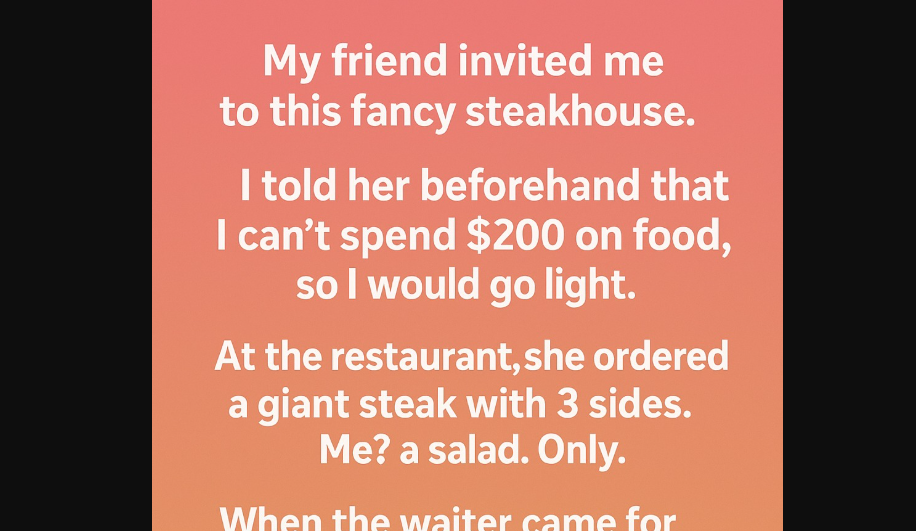I thought I was being a good wife, planning an elaborate dinner party for Todd’s 35th birthday. But just before the guests arrived, he announced he was ditching the party to watch a game at the bar. What happened next? Let’s just say, I got the last laugh.
After six years of marriage, you’d think someone would show a little gratitude. But not Todd. Every year, I poured my heart and soul into his birthdays, only for him to take it for granted. This year, though, his entitlement reached a whole new level.
Todd and I have been married for six years. Don’t get me wrong—our relationship isn’t all bad. Todd can be charming when he wants to, and we’ve shared some great moments. But his habit of taking credit without effort? That drives me up the wall.
Take last Thanksgiving. Todd announced over breakfast that we should host dinner for both our families.
“Sounds nice,” I said. “How are we dividing up responsibilities?”
He waved me off. “Oh, you’re so much better at this stuff. I’ll handle the drinks or something. Just make it memorable, alright?”
Two weeks of planning later, I roasted a turkey, whipped up sides, and baked two pies. Todd? He carried a cooler of beer into the living room. That was it. Yet somehow, when everyone complimented the food and decor, Todd basked in the praise like it was his effort.
“Glad you all love it,” he said smugly. “I wanted it to be special this year.”
That’s Todd. All credit, no work.
And his birthday last year? I spent weeks creating a custom photo album filled with memories of our travels and special moments. His response?
“Oh. So, where’s the real gift?”
That stung. I’d married a man who once wrote me poetry, and now he couldn’t appreciate a heartfelt gesture.
Fast forward to his 35th birthday. He demanded a “big, proper dinner” and left all the planning to me. I threw myself into it: a gourmet menu, a spotless house, even handwritten name cards.
The day of the party, everything was perfect. That’s when Todd strolled into the kitchen and casually dropped a bombshell.
“Don’t bother finishing all this,” he said. “I’m heading to the bar with the guys to watch the game. Just cancel everything.”
I stared at him, dumbfounded. “Todd, people are already on their way!”
“It’s not a big deal,” he shrugged. “They’ll understand.”
No. I wouldn’t let him embarrass me like that.
Instead of canceling, I sent a group text to the guests:
Change of plans! Meet us at the bar. Bring your appetite!
I packed up the food, drove to the bar, and set up a feast right in front of Todd and his friends.
“Oh, this?” I said loudly when someone asked. “This was supposed to be Todd’s birthday dinner, but he ditched me, so I brought it here!”
The room burst into laughter. Todd’s buddies ribbed him mercilessly, and his parents arrived just in time to witness the spectacle.
The pièce de résistance? A three-layer chocolate cake with “HAPPY BIRTHDAY TO MY SELFISH HUSBAND!” written in bold frosting.
By the end of the night, everyone was laughing—except Todd. On the drive home, he fumed about being humiliated.
“No, Todd,” I said. “You humiliated yourself.”
Two weeks later, Todd’s been quieter, more helpful, and unusually polite. He hasn’t apologized outright, but his sheepish behavior speaks volumes.
Sometimes, you have to draw the line. And when you do, it feels good to stand up for yourself.







